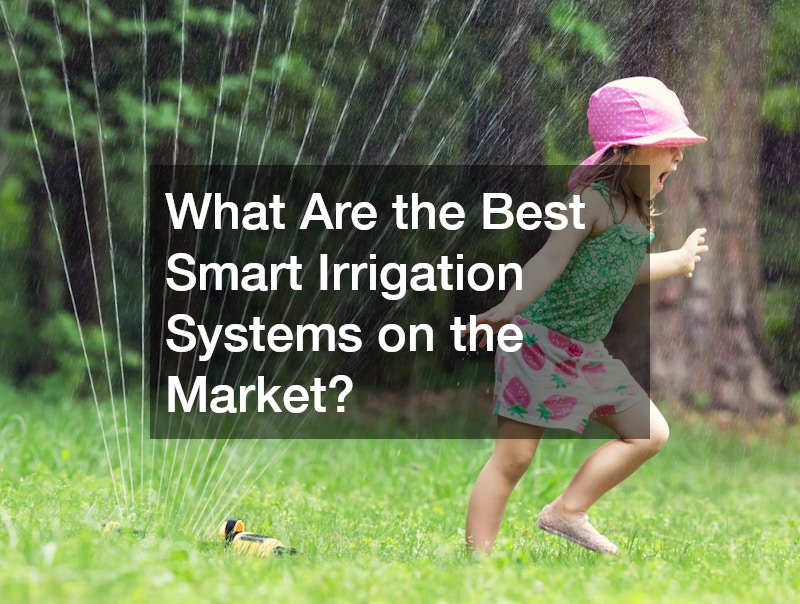
3 Smart Irrigation Solutions for a Greener, Healthier Lawn
The lush green lawns that adorn our homes require constant care, and the most crucial element for their maintenance is water. Traditional lawn irrigation methods often lead to water wastage and higher costs, making smart irrigation solutions an attractive option for the modern homeowner. By leveraging technology, these solutions optimize water usage, ensuring a healthier lawn that conserves water and reduces expenses.
1. How Does Smart Irrigation Work?
Smart irrigation technology involves the use of controllers that manage the watering schedules and amounts based on specific lawn needs. These systems incorporate advanced features such as weather-based adjustments and soil moisture sensors to tailor irrigation efforts. By doing so, smart irrigation minimizes water wastage and prevents over-irrigation, promoting a healthier lawn.
Weather-based solutions adjust irrigation schedules in response to real-time weather data, ensuring optimal watering conditions. This adaptability means that when rain is forecasted, the system automatically delays or reduces watering, thus conserving water. Meanwhile, soil moisture sensors provide feedback on the moisture level in the soil, ensuring that your lawn receives just the right amount of water.
Through the integration of these technologies, smart irrigation systems empower homeowners to manage watering efficiently. Lawn care is not only about aesthetics but also about maintaining the ecological balance of your yard. By reducing water waste, homeowners can enjoy both a healthier lawn and contribute positively to the environment.
Smart irrigation systems harness the power of connectivity, linking controllers to the internet for accessing real-time data. This connectivity allows the system to make informed decisions about irrigation based on current weather patterns and soil conditions. Automation ensures a hands-free approach, as homeowners can sit back and allow the system to intelligently manage water usage.
Through their connection to the internet, these systems can adjust schedules remotely, which is particularly beneficial for homeowners who travel frequently. Automation takes care of adapting the irrigation schedule to evolving weather conditions without manual intervention. This seamless operation maintains lawn health efficiently, reflecting technological advancement in lawn care.
2. What Are the Best Smart Irrigation Systems on the Market?
Several smart irrigation controllers have earned high praise for their efficiency and ease of use. Among the top contenders are Rachio, RainMachine, and Netro, each offering unique features tailored to different homeowner needs. These advanced systems integrate seamlessly with home networks, providing intuitive controls and reliable performance.
Rachio is renowned for its user-friendly interface and versatility, accommodating up to 16 zones, thus ideal for larger properties. RainMachine, on the other hand, is appreciated for its precise weather data integration, offering real-time adjustments based on hyper-local weather forecasts. Netro stands out for its sleek design and ease of use, often recommended for those new to smart irrigation systems.
These controllers all share a commitment to water conservation while ensuring optimal lawn health. With advanced features such as app integration and detailed reporting, users can monitor and adjust their irrigation systems from anywhere. Ultimately, choosing the right controller depends on specific lawn requirements and personal preferences.
When selecting a smart irrigation system, it’s crucial to consider several key features. Compatibility with existing irrigation setups and ease of installation can be vital factors for homeowners looking to transition to a smart system. Additionally, app functionality plays a significant role in allowing easy monitoring and adjustments.
3. How Can Smart Irrigation Solutions Save Water and Money?
Precision irrigation offered by smart systems represents a major innovation in minimizing water waste. By using data-driven insights, these systems determine the exact water needs of a lawn, avoiding over-application and runoff. This precision ultimately leads to significant water conservation, crucial in water-scarce areas.
Additionally, systems that incorporate weather forecasts and humidity data optimize watering schedules according to current and predicted environmental conditions. This not only enhances water efficiency but also ensures lawns receive timely irrigation suited to their needs. Homeowners benefit from having greener lawns with less effort and less water.
The accuracy achieved through smart irrigation means that water is applied only where and when needed. This approach reduces stress on local water supplies and supports conservation efforts. By adopting precision irrigation, homeowners contribute to sustainable water use practices while maintaining healthy, vibrant landscapes.
The adoption of smart irrigation solutions plays a pivotal role in achieving a greener, healthier lawn while conserving water and reducing costs. The integration of innovative technologies such as smart controllers, soil moisture sensors, and connectivity transforms traditional lawn care. Homeowners are encouraged to explore and implement these advanced solutions to promote sustainable, efficient, and effective lawn management.


